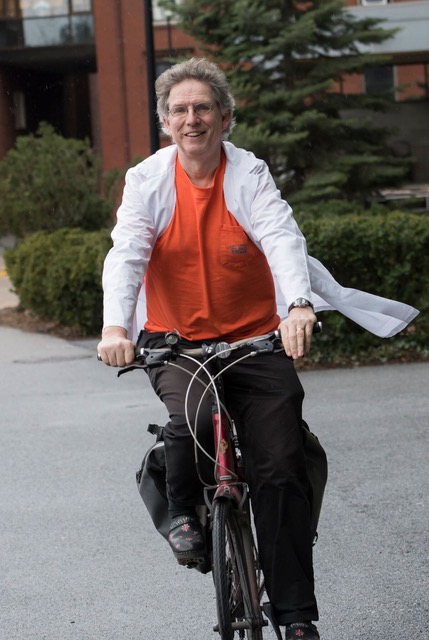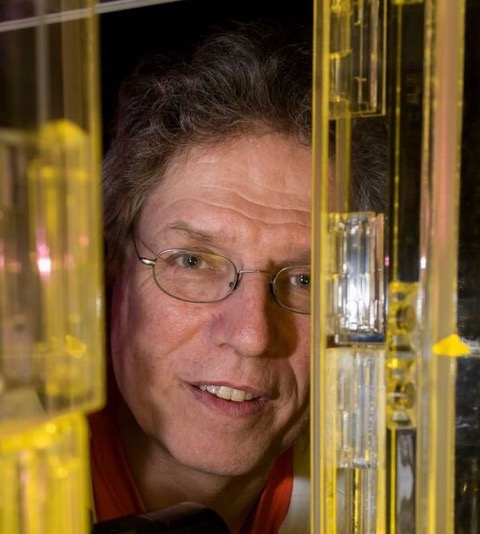 Professor Andrew Murray Photo by Rick Friedman.
Professor Andrew Murray Photo by Rick Friedman.
Andrew Murray is the Herchel Smith Professor of Molecular Genetics at Harvard and a Howard Hughes Medical Institute Professor. He describes himself as “a physicist who was left on a biologist’s doorstep,” interested in the “rules of the game” rather than the mechanisms. His research group uses synthetic biology, experimental evolution, and cell biology to study how cells function and evolve.
For a biologist, leaving the lab for a month to participate in a KITP program is an exceptional act. Murray thinks it’s worth it—his KITP visits have big impacts on his thinking. “It’s the most intellectually fun place I go to talk about science. And that has huge, but rather difficult to measure, benefits for science.”
He describes what makes KITP an exceptionally productive place for scientists to gather. “You can have places that are friendly and you can have places that are rigorous. It’s really quite hard to do both.” The primacy of discussion in KITP seminars means that scientists can ask tough questions. The relaxed schedule and immersive “summer camp” experience mean that those questions aren’t hostile acts but rather welcome entreés into discussions that lead to real progress. “You see [your fellow scientists] all the time, you sit next to them in lectures . . . if you disagree, you should talk about it and you should try and figure out, how constructively can you disagree?”
 Photo by Rick Friedman.
Photo by Rick Friedman.
Murray tells an allegory about the magic of KITP: “You’re working on some problem, you’re drinking a cup of coffee. You take a sip, and all of a sudden, a genie emerges from your coffee cup. The genie says, ‘I will answer one well-posed question about the problem you’re working on.’ . . . if you have two people in two separate offices but working on the same problem and one is a physicist and one is a biologist, they will ask the genie really substantially different questions . . . it’s stimulating to mix people together who ask different questions about the same thing.”
“To me, going to KITP is as close as I ever get to being a graduate student again, and the intellectually happiest time of my life was being a graduate student,” Murray says.
“It’s summer camp for scientists.”
- Maggie Sherriffs, Special Programs and Evaluations Manager, KITP
KITP Newsletter, Spring 2020
